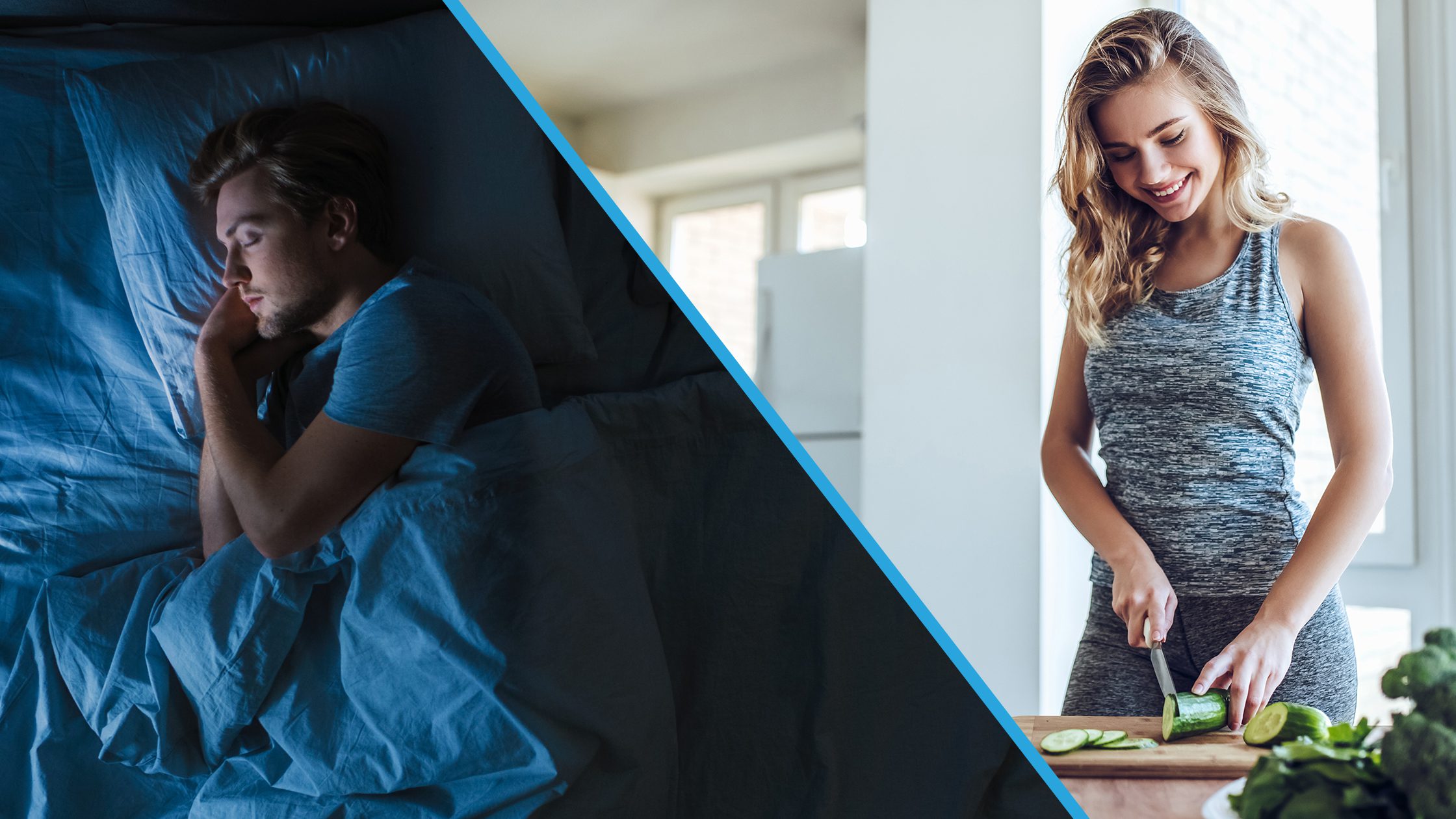Sleeping Tips to Prepare Student-Athletes for Top Performance

The transition from summer to school schedules can be tough on any family. Families with student-athletes have more to coordinate than carpooling and homework to settle into a new routine. We have some tips that can help you get your student-athlete to achieve their performance goals every season.
Develop good sleep habits now.
Sleep is essential for overall health and athletic performance. While you’re sleeping, your body shifts its focus to recharging and regulating various internal systems, down to the little proteins that fuel your immune cells. When you wake up, you’ll experience improved cognitive function and a better overall mood. During this time, your body stabilizes the hunger hormones, ghrelin and leptin, so you may find yourself snacking less when you’re well-rested, too.
Because of the strong relationship between sleep and nutrition, it’s vital that you help your student athlete establish healthy habits around sleep at the start of the school year or before a new sports season. Our registered dietitian, Alisha Parker, has some recommendations to help you get started now.
Sleep Recommendations
At ACCEL, we recommend getting between 8–10 hours of sleep at night and a 30-minute nap between 2–4 p.m. for peak performance in student-athletes. Taking a nap past 4 p.m. may delay your student athlete’s bedtime and disrupt their sleep schedule.
If your student-athlete has trouble falling or staying asleep at night, here are a few things you can try:
- Adjust the thermostat and implement a fan, when needed. The sleep foundation recommends setting your thermostat between 60–67 degrees.
- If they are easily startled by sudden noises, using a white noise machine or fan can help drown out sounds.
- During the month of August, in Memphis, TN, the sun doesn’t begin to set until 8:00 p.m. Blackout curtains and/or an eye mask can help reduce light shining through their room.
- Evaluate their mattress and pillows. Find one that is most comfortable for them. Most mattresses should last between 7–10 years.
- Avoid blue light frequencies including cell phones, laptops, TV, and video games for 2 hours before bed. If you cannot avoid blue light emitting devices, consider purchasing blue light-blocking glasses to manage exposure.
- Stick to a sleep schedule that they can implement on the weekends and when traveling.
- Create a bedtime routine that promotes relaxation and decreases stress for the next morning. This is a perfect time to set aside their breakfast, lunch, and pre-practice snack options. Gather their gear, equipment, school supplies and put them in a place that is visible and easy to grab in the morning.
- Avoid spicy foods, acidic foods, and caffeine before bed.
- When possible, keep dinner no later than 3 hours prior to bedtime.
- After dinner snacks are OK and may help support muscle protein synthesis, recovery, and sleep. See below for suggestions.
Foods that Support Sleep
- Almonds: they contain both magnesium and melatonin
- Turkey: High in protein and the amino acid tryptophan
- Tart Cherry Juice: contains naturally occurring melatonin, magnesium, and potassium
- Walnuts: Omega-3 fatty acid content may increase serotonin production
- Dairy: Contains tryptophan
- Bananas: High in Magnesium
- Kiwis: Abundant in Serotonin
- Oatmeal: high in carbohydrates, source of melatonin
Putting it all Together – Late Night Snack Ideas
- Yogurt parfait: Greek yogurt with granola and berries
- Oatmeal with chopped walnuts and sliced bananas
- Tart-cherry juice with 1 scoop of protein powder and ice
- Turkey wrap with sliced cheddar cheese
- Strawberry-kiwi smoothie: Sliced kiwi + sliced strawberries + ½ cup Greek yogurt, ½ cup milk (or fluid of choice) + ice
Need more guidance on how you can help your student-athlete prepare for the fall season? Contact our team for more information about the services available for student-athletes.
